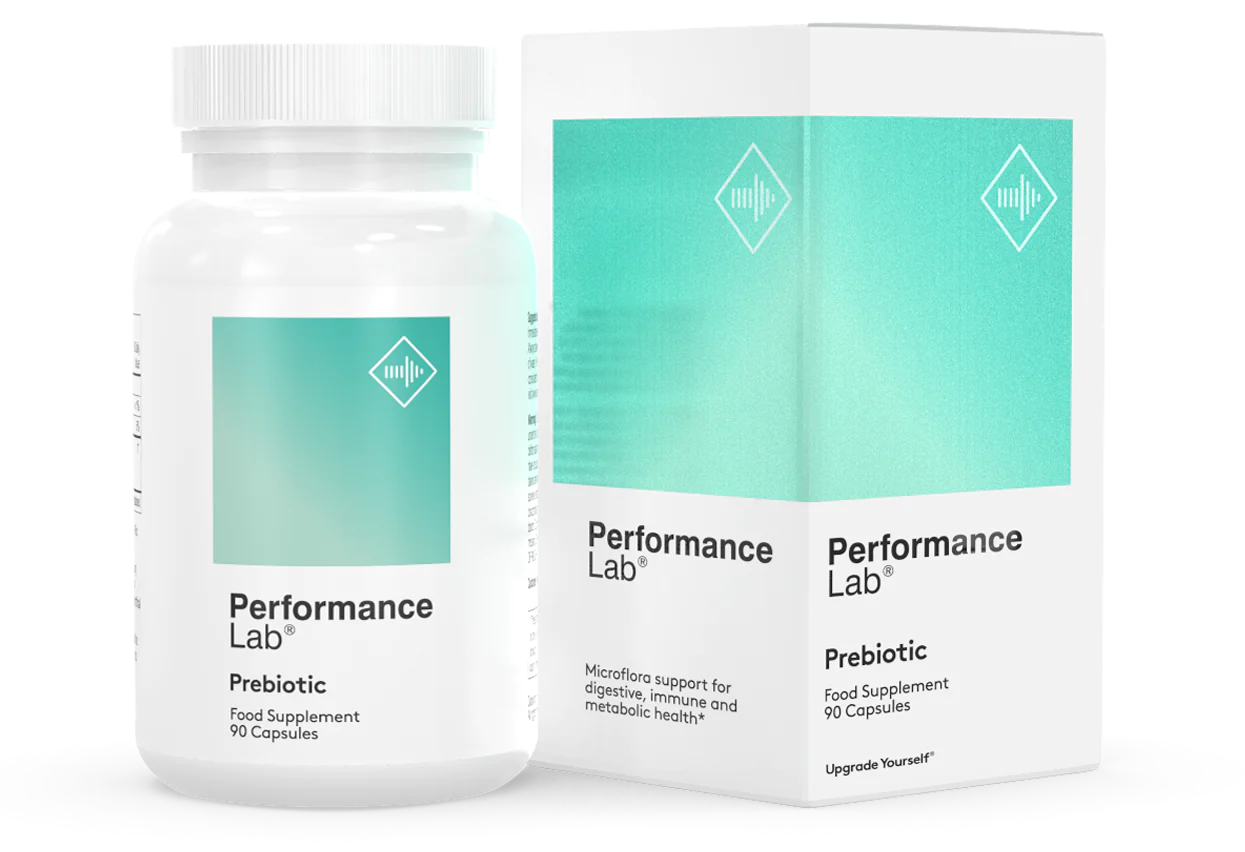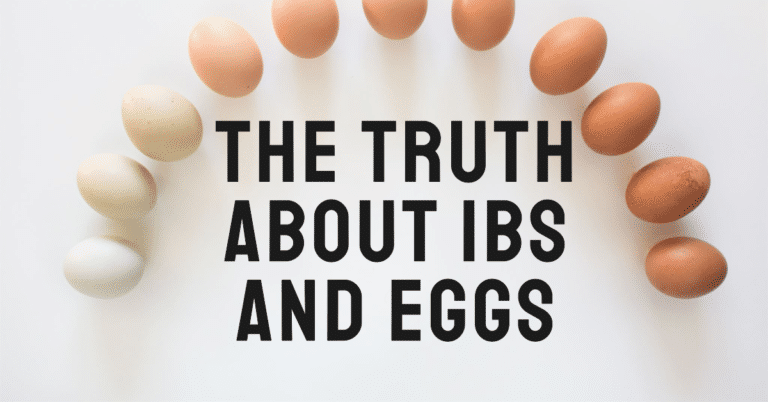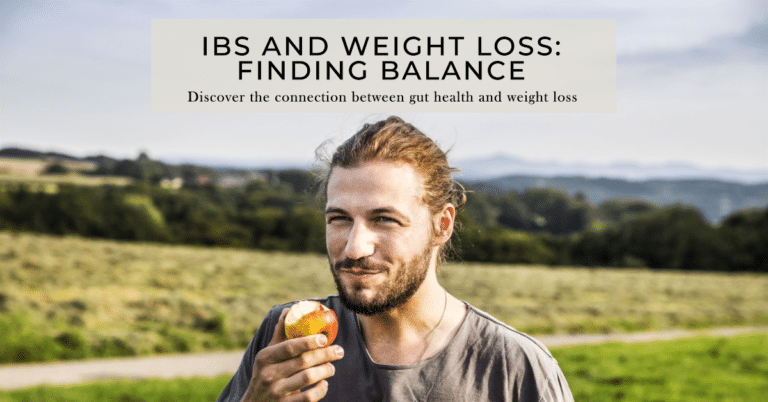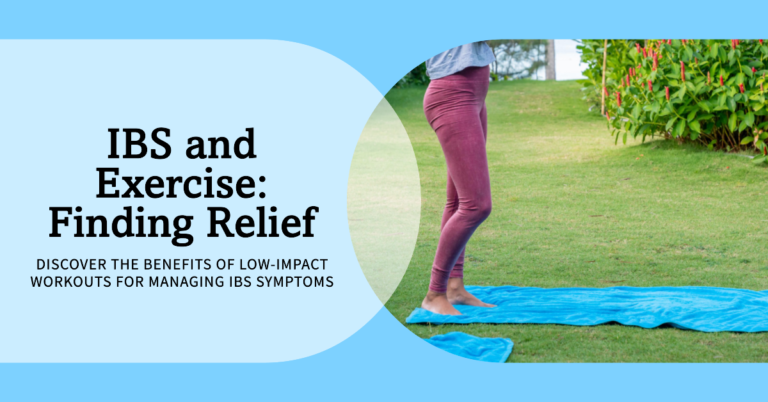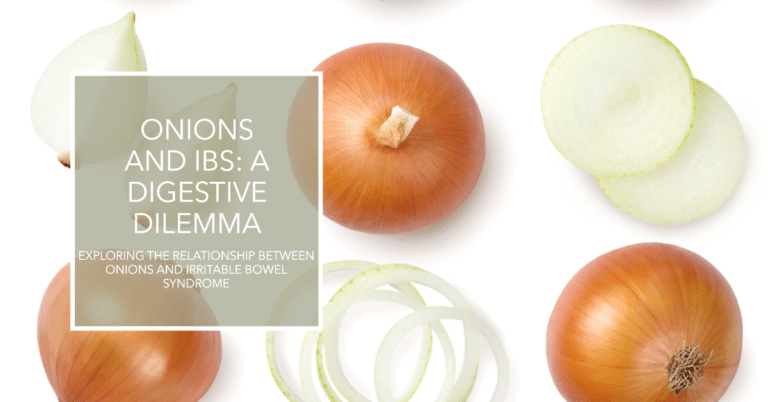IBS is Ruining My Life: How I Took Control and Learned to Thrive
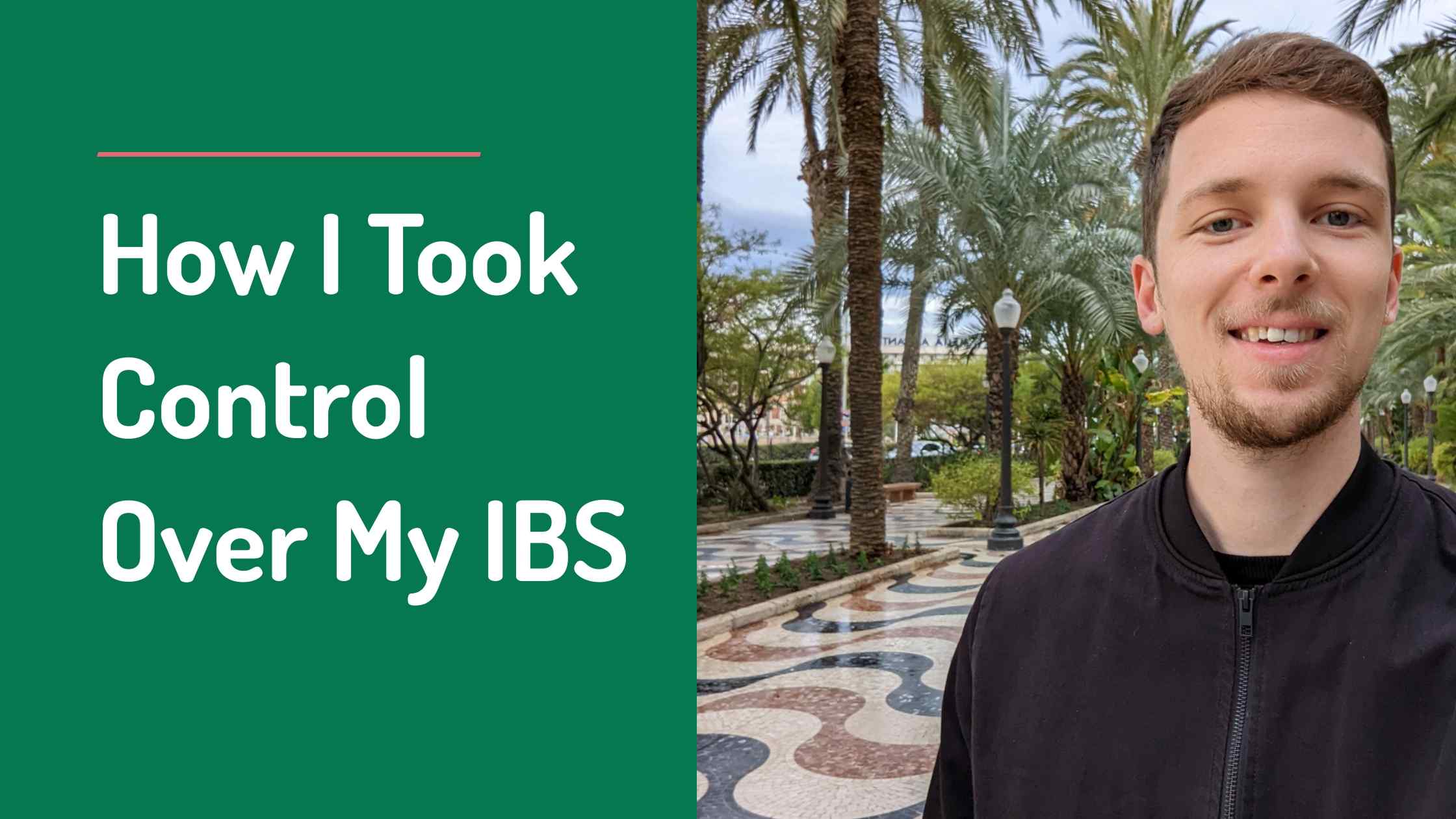
IBS (Irritable Bowel Syndrome) has officially been a part of my life since I was diagnosed with it in 2021 (with a celiac diagnosis thrown in for good measure!).
From horrible bloating after meals to the seesaw of constipation and diarrhea, it’s safe to say that life with this condition is far from easy.
But there’s hope—I took control, and so can you.
Stick around if you want the lowdown on how to turn the tables on this debilitating condition and how I got out of the habit of saying to myself that IBS is ruining my life.
Key Takeaways
- IBS wreaks havoc on daily life, but you can take control.
- Mindfulness and stress management are pivotal in managing IBS.
- Diet changes, like avoiding common trigger foods, can make a real difference.
- Medical treatment options are available and can be highly effective.
- FODMAPs are not your friend—seriously.
The Torturous Cycle of IBS Symptoms
Finding the Culprit: What Triggers IBS?
Don’t let anyone sugarcoat it—IBS symptoms are a riddle wrapped in a mystery. From abdominal pain to alternating bouts of constipation and diarrhea, it’s enough to ruin any semblance of a normal life.
But let’s talk triggers. Caffeine, processed foods, and even stress can set off your gut like a fireworks show.
But how do you pinpoint what’s setting your insides ablaze? A great place to start is by identifying IBS trigger foods.
Some of us folks diagnosed with both celiac and IBS find that gluten can be an uncommon but potent trigger. And believe me, it’s not just a fad; going gluten-free made a noticeable difference in my IBS symptoms.
When I chucked those sneaky gluten-packed items from my pantry, my gastrointestinal universe seemed a little less chaotic.
The Link Between Stress and IBS
Mental distress doesn’t just give you gray hairs—it messes with your gut. The link between stress and IBS is like a Shakespearean tragedy; it’s complex and dramatic.
For some, anxiety and depression exacerbate the already debilitating symptoms of IBS. It’s a vicious cycle: stress heightens symptoms, which in turn ups the stress.
Hence, stress management and other forms of IBS self care isn’t just some trendy phrase; it’s an essential component in handling IBS.
Mindfulness and cognitive behavioral therapy (CBT) can work wonders. These relaxation techniques make your brain dial down its overreaction to what’s happening in your bowels.
And let’s be real, in the world of IBS, a little relaxation can go a long way.
Demystifying IBS Treatments: What Works?
Probiotics: Gut Saviors or Placebo?
If your gut had a wishlist, probiotics might top the charts. These live bacteria and yeasts purportedly balance out your gut flora, but let’s cut through the hype.
They do offer some relief, but it’s not a one-size-fits-all kind of deal. Different strains have different effects, so it takes a bit of a treasure hunt to find your golden probiotic.
The best IBS supplements often contain a mix of strains to cover all bases.
Strains to Consider
- Lactobacillus
- Bifidobacterium
- Saccharomyces boulardii
Factors to Remember
- Potency
- Shelf-life
- Compatibility with your specific IBS symptoms
IBS Medications: The Heavy Artillery
If your IBS is hell-bent on ruining your life, sometimes you’ve got to bring in the big guns.
Prescription medications like antispasmodics, antidepressants, and even some new-age targeted therapies can make a world of difference.
They usually come into play for severe symptoms that lifestyle changes alone can’t quell.
| Medication Type | What It Does | Common Examples |
|---|---|---|
| Antispasmodic | Eases abdominal pain and cramps | Hyoscine |
| Antidepressants | Treats both IBS symptoms and associated anxiety or depression | Amitriptyline |
| Targeted Therapies | Treat specific IBS symptoms with fewer side effects | Eluxadoline |
Just remember, always consult your healthcare provider before jumping onto the medication bandwagon. And let’s face it, medications can help but they’re not the be-all and end-all.
Supercharge your performance and optimize gut health with Performance Lab Prebiotic. Unleash your true potential and experience the winning edge you’ve been searching for.
Living with IBS: The Daily Grind
Making Lifestyle Changes: Diet and Exercise
You can’t underestimate the power of lifestyle changes. Yes, I’m talking about managing IBS by altering what you eat and how you move.
For instance, a low FODMAP diet can be a game changer.
FODMAPs are essentially carbohydrates that are hard to digest and can cause your gut to go into hyperdrive. Understanding this changed my life, and it might change yours too.
Physical activity also deserves a shout-out.
Researchers believe incorporating regular exercise into your routine can help manage IBS symptoms.
It’s not about becoming a gym rat; even light exercise can help soothe your stressed-out gut.
Social Life and IBS: The Elephant in the Room
IBS is the awkward guest at every social gathering. Whether anxiously searching for the nearest restroom or avoiding dinner invitations like the plague, living with IBS can make social situations a minefield.
It’s tough, but opening up about your condition can actually empower you. People are generally understanding, and it can lift a huge weight off your shoulders.
Make Peace with IBS, Don’t Just Tolerate It
Let’s keep it real: IBS can be an absolute nightmare. But here’s a golden nugget—IBS may not have a cure, but it’s not a life sentence either. Treatment is about far more than symptom relief; it’s about reclaiming your quality of life.
Cognitive-behavioral therapy (CBT) often gets overlooked, but don’t underestimate its power. In CBT, you’ll learn to reframe the anxiety and depression that often accompany IBS, which can, in turn, help to alleviate your symptoms.
Gut-led hypnotherapy is another superb method to consider – I’ve personally tried Nerva IBS and it was a complete game-changer in managing my symptoms.
Look, self-care isn’t selfish – it’s crucial for surviving and thriving despite your chronic condition. A support system can also make a world of difference.
No, they won’t understand the constant pain or the strong urge you get to find a restroom, but they’ll provide the emotional sustenance you need.
IBS is Ruining My Life – Final Thoughts
IBS swooped into my life, wreaking havoc on my daily routines and comfort. But I decided not to be a passive sufferer.
From dissecting triggers and incorporating medications to embracing lifestyle changes and even engaging in gut-directed hypnotherapy with Nerva IBS, I’ve fought to seize back my life.
It’s an ongoing struggle, but the steps I’ve taken have offered me relief and a renewed sense of empowerment.
If I can do it, so can you. Flip the script on IBS—take back your life, one bowel movement at a time.
Disclaimer: This content is based on my personal experience as an individual diagnosed with celiac disease and IBS (Irritable Bowel Syndrome) who follows a strict gluten-free diet. This does not constitute medical advice. Please consult a medical professional, nutritionist, or qualified dietitian for personalized, professional advice.

